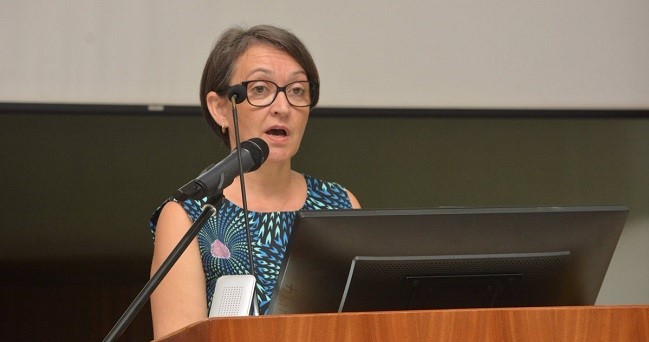The Deputy Director-General, International Institute of Tropical Agriculture (IITA) Research for Development, Dr Saethre May-Guri, has emphasised the need to eliminate greenhouse gases (GHGs) to mitigate the effect of climate change on the African continent.

May-Guri gave this advice on Tuesday, May 21, 2019 at the 22nd symposium of the International Association of Research Scholars and Fellows (IARSAF), held at the IITA in Ibadan, Oyo State.
Theme of the symposium is: “Innovative agricultural research for food security and climate change mitigation in Sub-Saharan Africa.’’
She said that early career and upcoming researchers in Africa should aim at conducting researches that would meet the global, continental challenges, such as climate change.
May-Guri noted that the practical, theoretical suggestions that would be discussed at the symposium were expected to help in contributing to food security and mitigate climate change in Africa.
“IITA expresses appreciation to all IARSAF members, scientists, friends who contributed to the success of the symposium.
“We assure you of our continued support in driving the research for development at the centre to ensure Africa succeeds in transforming its agriculture in a sustainable, innovative way for a better future,” she said.
Also speaking, the Chairman of the occasion, who is also the founder of Akin Fagbemi Foundation, Ibadan, Dr Stephen Fagbemi, said the effects of climate change on the continent would have worst impacts on its agricultural production.
Fagbemi, represented by the former IARSAF President, Mr Taofeek Adegboyega, noted that climate change places stress on forests, which are under pressure from population growth, expansion of agricultural practices and commercial logging.
He, therefore, urged scientists in Africa and partners to develop drought, heat-resistant crops, improved livestock breeds and new soil techniques, water conservation management.
In her keynote address, a Professor of Rural Sociology, Janice Olawoye, said activities such as cutting down forests, bush burning and gas flaring have directly and negatively impacted on the environment.
Olawoye said that the causes and effects of climate change were multi-faceted involving social, political, economic and environmental sectors.
She however underscored the need for gender mainstreaming in climate change policy formation, research activities, project development and for training at all levels.
According to her, some formal adaptation strategies to tackle climate change were provision of early warning weather forecast, promotion of drought resistant crops, use of bio-gas, among others.
She further urged individuals to always plant trees to absorb much of carbon dioxide in the atmosphere and take proper care of their environment to prevent further degradation of the environment.
Earlier, the IARSAF President, Dr Sanni Afolabi, said the association was a platform for fellows, early career researchers to showcase their research and brainstorm on crucial issues affecting agriculture in Africa, with the aim of providing innovative solutions to the problems.
He said the theme was chosen to address the impact of climate change on food security and hidden hunger (malnutrition) in Africa.
According to him, the training will include, training on grant-winning proposal writing, training on scientific engagement, advancement to be handled by well seasoned professionals.
By Chidinma Ewunonu-Aluko
